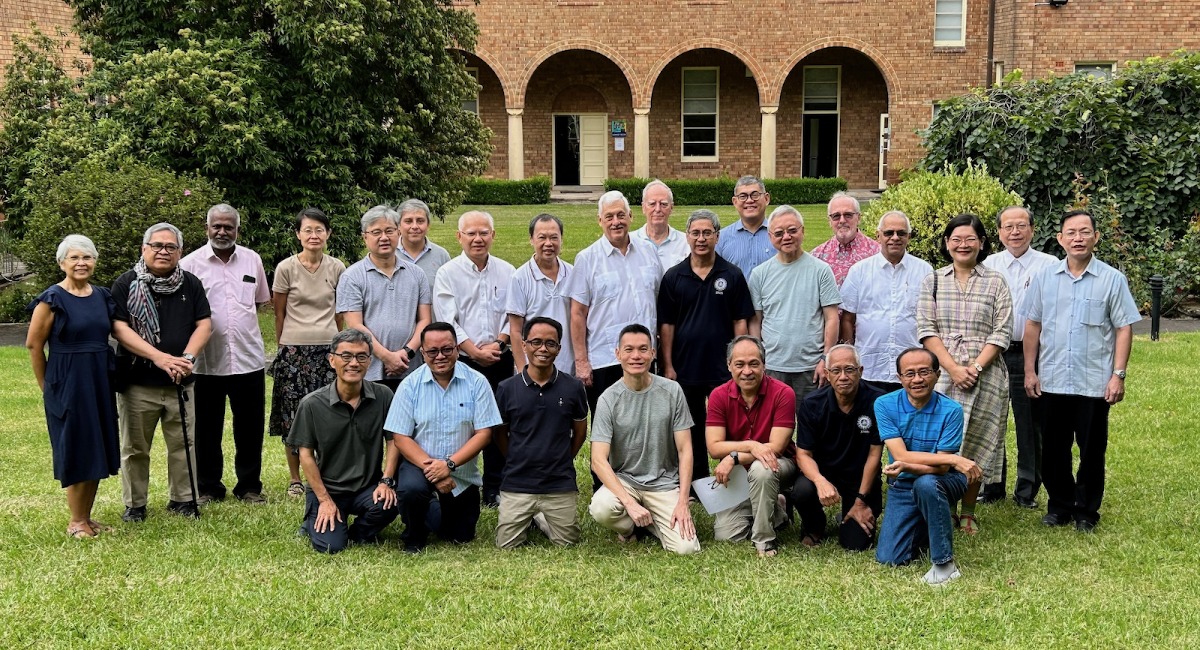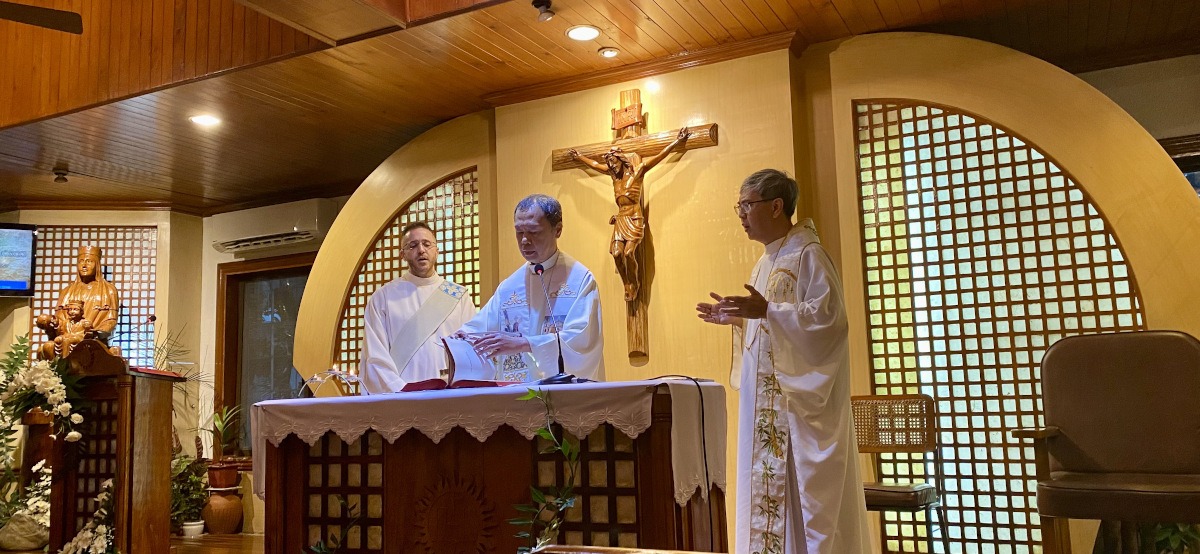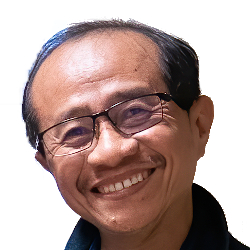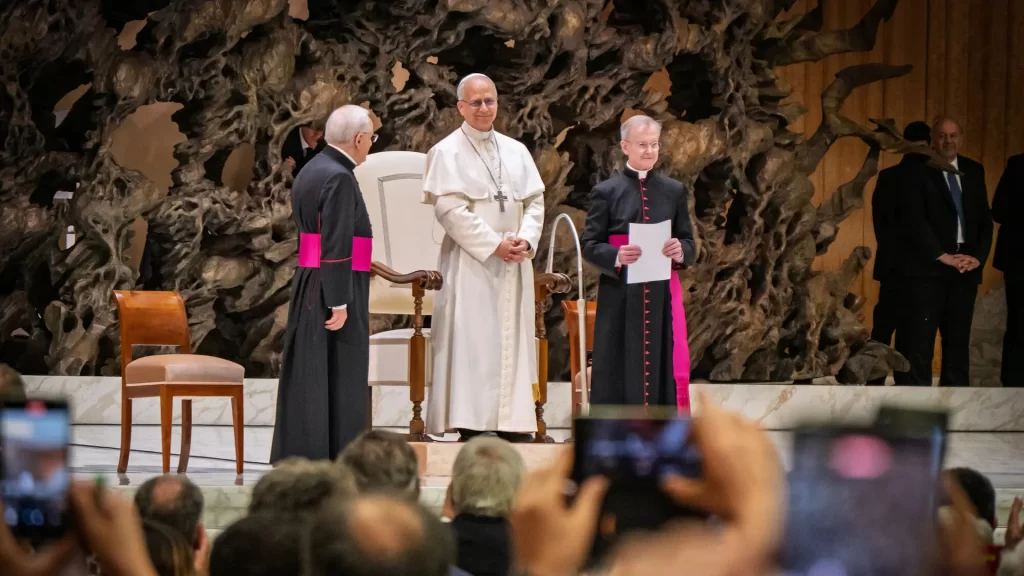
JCAP Major Superiors and mission partners with Fr General Arturo Sosa SJ in the gardens of St Peter Canisius House in Pymble, Sydney, January, 2024
Six years ago, in 2017, after nine and a half years, Fr Mark Raper SJ stepped down as President of the Jesuit Conference of Asia Pacific (JCAP), handing over the guidance to Fr Tony Moreno SJ. Fr Moreno acknowledged that he was stepping on new ground but said, “This is all about mission.” Indeed, in the last six years, he often repeated the expression, missio dei.
Geographically, our Asia Pacific Conference covers a huge area, but it boasts the fewest number of Jesuits among the six conferences globally. The reality of our working environment is culturally, politically, economically, and religiously diverse. “The great religions are here—Islam, Buddhism, Christianity,” Fr Moreno once noted. There are also many different cultures and political systems across the region. Living out of the faith that does justice in such a diverse, multicultural, multi-religious context is a big challenge, but it also means that the Asia Pacific region has a unique contribution to make to the discernment process. When talking about leadership, Fr Moreno always tied it to discernment.
Discerning leadership, as Fr Moreno put it, is inspired by Ignatian spirituality, in which “self-awareness and responsiveness to inner movements of the Spirit provide the interior compass of Ignatius’s decision-making and execution of leadership tasks”. Collaboration and networks have become prominent themes, requiring immediate action or attention. The leader “discerns and collaborates with others” and leads “by bridging with others”. For example, he noted, there is much to learn from the Jesuit-lay collaboration in the Australian experience.
The newly created Ignatian Spirituality Network (ISN) has conducted workshops for discernment in common and spiritual conversation. The dialogue networks (with Islam and Buddhism), many times linked with Ignatian Spirituality, have deepened their research and publication output. In the last six years, several new networks have been formed in addition to ISN: Development Officers, Safety in Ministry, Deans of Theological and Philosophical Centers, and Archivists.
The 2020-2022 pandemic reshaped our life-mission. Despite its challenges, it ushered in a new epoch of great confidence, unity, imagination, and flexibility. The works in the conference were augmented by various efforts to mainstream the implementation of the Universal Apostolic Preferences (UAPs). With the celebration of the Ignatian Year, the examen on the vow of poverty, challenges and prospects, and the De Statu Societatis Iesu (DSS) examen, significant progress has been made in moving forward as a conference. In addition, as Fr Moreno indicated, “There is renewed interest in the situation in Myanmar, as well as in China, Laos, and Pakistan.”
Fr General Arturo Sosa SJ has on many occasions encouraged the conference presidents to engage in the discernment and planning for the Society of Jesus. General Congregation 36 requested the six conferences to commence a study on their way of proceeding considering the president’s decision-making authority in relation to the co-responsibility of the major superiors, his involvement in the apostolic planning of provinces and regions, and in facilitating the preparation of Jesuits for international apostolates (GC 36, Decree 2, No 20).

Fr Tony Moreno presides over the thanksgiving Mass with Fr Jun Viray concelebrating during the official handover of JCAP leadership held in Manila
In his years as president, Fr Moreno has advocated tirelessly for collaboration. “What you see in the conference now is the fruit of collaboration, not of a few persons,” he is quick to stress. “There is greater collaboration and solidarity for the small and struggling units like Myanmar, Thailand, Timor-Leste, and Cambodia. There is the inclusion of Laos and Pakistan. More networks and sectors have stepped up and promoted intersectoral collaboration: migrants and refugees, basic and higher education, and reconciliation with creation.”
Collaboration is inherent in the DNA of the Society of Jesus. General Congregation 35, Decrees 5 (2008) gave conferences a more pro-active role in promoting the Society’s universal mission. Collaboration and networking across provinces and apostolates have been increasingly acknowledged as the essential way of proceeding.
Now, with Synodality coming to the fore, the practice of collaboration and networking has taken on a new dimension. While we are re-imagining leadership, we may ask, What does synodal leadership mean in the universal Society? It is promoting a new culture, which requires getting used to prayerful discernment, collaboration, patience, and confidence building. It is about a willingness to be led by the Spirit, about walking together, and about listening to each other.
Fr Jun Viray was appointed to take over from Fr Moreno by a decree issued by Fr General Sosa on 13 June 2023. Fr Viray is tasked with putting into practice what Fr Sosa addressed in his January 2024 participation in the Major Superiors Assembly in Australia. The focal point of his speech was the importance of remaining open to change, both within the Society and in the Church, as adaptability in heeding the Spirit’s guidance is crucial in today’s era.
Father General underscored the need for a thorough examination of how the UAPs are implemented. He emphasised the significance of collaboration among all members—Jesuits and partners alike—in pursuit of a shared mission. He urged us to foster a vision of a more cohesive apostolic community, increasingly inclined towards collaboration.
And so, with a new president, we continue our journey with faith, hope, and courage despite the absence of immediate solutions. As a synodal body, we persevere in our willingness to listen and learn from one another, prepared to embrace surprises in our mission, eager to discern God’s will, and committed to allowing the Spirit to guide us towards a life of fullness and freedom.
This article was first published in The Jesuits Asia Pacific 2024 magazine.







